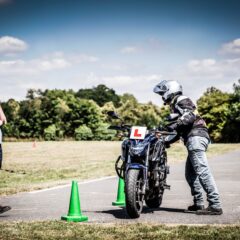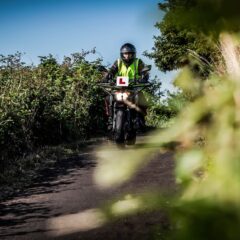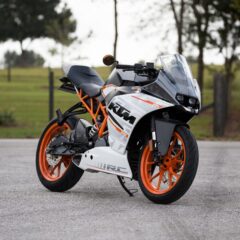
7 Top Motorcycle Accessories
With Christmas just around the corner, you might be wondering what to get your favourite motorcycle enthusiast or even a little something for yoursel...
 Phoenix Motorcycle Training LTD
Phoenix Motorcycle Training LTD
 Phoenix Motorcycle Training LTD
Phoenix Motorcycle Training LTD

When you’ve decided to get your motorcycle licence, finding the best UK motorcycle lessons for you takes a little research. Great lessons aren’t just about the cost. Although that’s definitely a factor, value is far more important.
Choosing your motorcycle training on cost alone could end up with you forking out more than you expected. Not only in money but also your time. How? Because some lessons aren’t all-inclusive. Others might not get you to a level of competence quickly enough for you to pass the Mod 1 and Mod 2 practical tests for your licence.
That’s why it pays to look around to find the best UK Motorcycle lessons for your particular needs. Understanding UK motorcycle licence rules will help you make the right choice. Below we’ll take a look at what to expect from motorcycle training in the UK and how to choose a course that’s right for you.
16 is the earliest you can learn to ride a motorcycle (moped) on the road. You’ll need to apply for your provisional licence first and then book your motorcycle training. This first phase of UK motorcycle lessons is known as your Compulsory Basic Training or CBT course.
If you already drive a car, or hold a motorcycle licence from a different country, you may be able to skip compulsory basic training. It depends on when and where you got your licence, the machine you want to ride and how long you want to ride in the UK for.
If you got your UK driver’s licence before February 2001, you can ride a motorcycle or moped up to 50cc without needing a CBT certificate.
For riders with international motorcycle licences, you’ll need to check for your specific circumstances. UK motorcycle lesson rules vary depending on which country you gained your licence from.
Phoenix Motorcycle Training has over 20 different training centres across the UK. We’re the UK’s largest motorcycle training school and the first to achieve the MCIAC Gold Standard for our motorcycle training. It’s likely that we have a motorcycle training centre near you. You’ll find our closest training centre for UK motorcycle lessons on our motorcycle training courses page.
Motorcycle lessons start with the basics and then gradually move into more complicated skills. Most riders will need to take two different UK motorcycle lessons — compulsory basic training and then full licence training.
Compulsory basic training equips new riders with the basic skills needed to safely and confidently navigate public roads. If you have a CBT certificate, you can ride on any UK road aside from the motorway. Your CBT certificate is valid for two years. If you’re old enough, you can upgrade to a full A1, A2 or A motorcycle licence before your CBT runs out.
Full motorcycle licence training prepares you for riding in all sorts of conditions, including dual carriage way riding. At Phoenix Motorcycle Training, we book your DVSA mod 1 and mod 2 tests as close to the end of your full training days as possible. This improves your chances of passing on your first try.
Compulsory basic training can only be taught by accredited and qualified UK motorcycle instructors. This is because only DVSA-accredited motorcycle instructors can give you your CBT certificate (also known as a DL196). They train you and check to make sure you’ve reached the required level of competence before awarding you with the DL196.
When it comes to full licence training, there’s more of a grey area. You could get your friend to teach you if they had the right kind of motorcycle and a large private tarmacked area inaccessible to the public, for you to learn on (further caveats still apply). You can also book your Mod 1 and Mod 2 directly with the DVSA. You’ll be responsible for providing the right motorcycle, kit and insurance. Plus you’ll need to get everything there for the test.
Learning with a friend can be a little tricky when you’re not legally able to ride a bike above 125ccs on the road without a DVSA-qualified instructor accompanying you. Nor can you ride it to test with until you’ve passed the test. This is why most people take full licence training with a recognised and accredited UK motorcycle lesson provider. It makes moving on and taking your motorcycle licence test so much easier.
When you know what kind of UK motorcycle lessons you need, it’s time to look around for a credible and competent motorcycle training school. Start by asking your motorcyclist friends. Find out where they learned to ride and what they thought of the instructor and the experience overall. Then you’ll want to check out the online reviews from past students.
Once you have a shortlist of motorcycle training schools, look at what their courses cover. Not just the training modules, but also what the course fees include. All-inclusive training often delivers the best value possible for students. Cheaper UK motorcycle lessons often have essential items that aren’t covered by course fees. That can be anything from insurance to petrol, safety gear to your test fees. Make sure you know exactly what you are paying for before you put your hand in your pocket.
After you’ve finished looking into lessons and schools, it’s time to book your training. Most reputable motorcycle training schools will let you do some of the courses online. If you’re still a little unsure, it might be better to give the school a call to book your training. This gives you a chance to sound out the people you’ll be learning with and be 100% confident you’re choosing the right UK motorcycle lessons for your skill level and licencing needs.
Learning to ride a motorcycle should be a fun and confidence-building experience. Who you choose to take your lessons with has a huge influence on that. If you’d like to learn more about our UK motorcycle lessons for new riders, UK drivers or even international riders, give us a call today. We’re always happy to chat about riding with you!

With Christmas just around the corner, you might be wondering what to get your favourite motorcycle enthusiast or even a little something for yoursel...

If you love motorcycle riding, you’ve probably daydreamed about riding a motorbike for a living. A professional racer or stunt rider is OK for some...

Getting a UK motorcycle licence can seem a complicated process. Particularly when compared to a driving licence for a car. Whether you choose the pro...